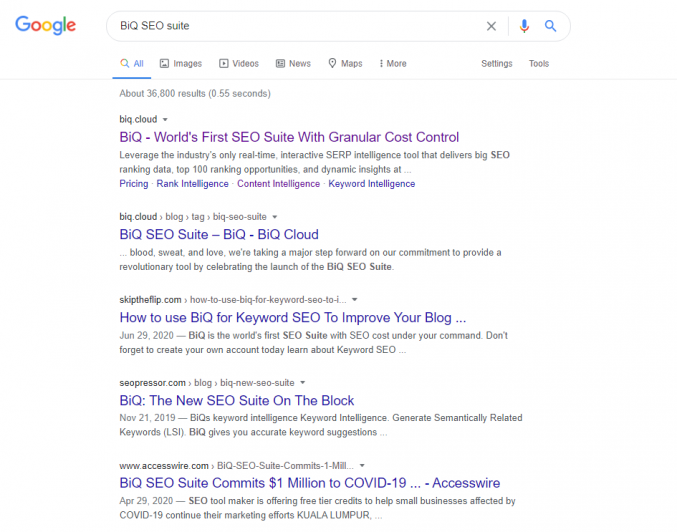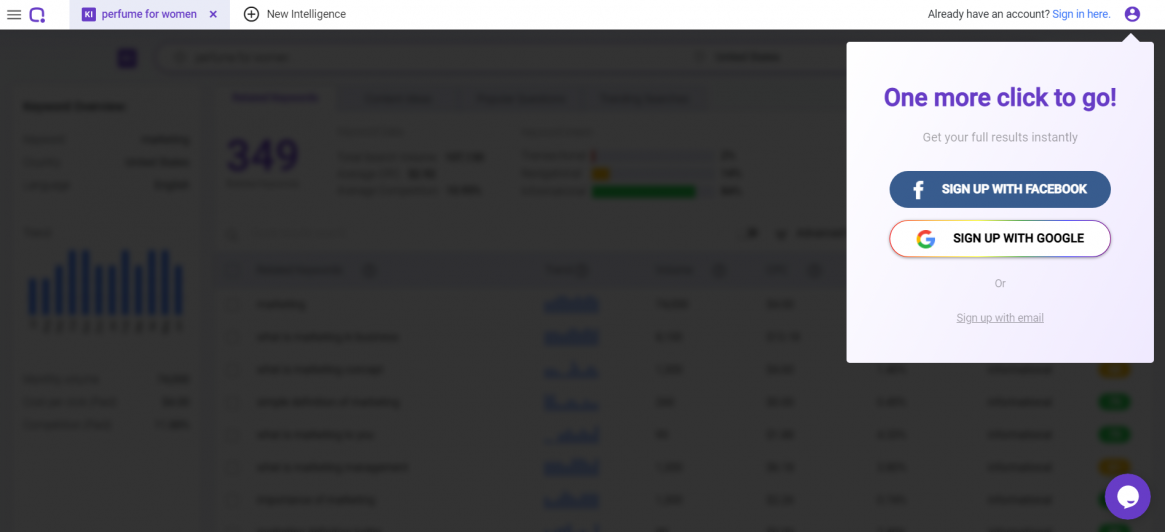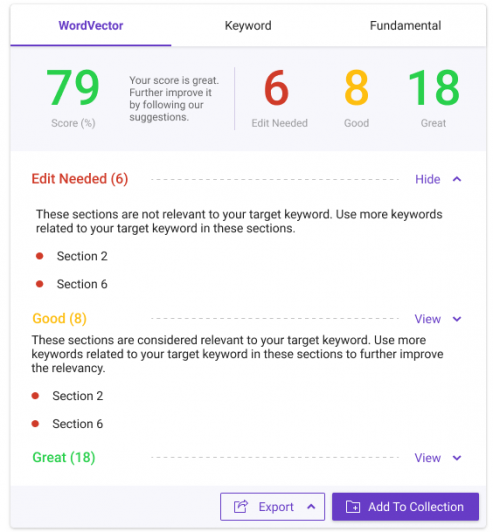Does your small business need a blog? The answer is a definite yes, you should blog. Because in this era, you cannot run a successful business without a robust online marketing strategy.
Given the challenge of capital and time among small business owners, it is important to focus on cost-effective marketing approaches that can help build your online presence.
Naturally, one such marketing option that you can consider for your small business is blogging.

Businesses that have an active blog on their website are more likely to get visitors to make a purchase. A study by Lyfe Marketing concluded that 55% of users are encouraged enough to buy from a business if they have an interesting blog.
Thing is, you do not need an established audience to develop an online brand or grow traffic. Content and social media marketing targeted at the right audiences can start generating revenue for you, which is more than worth investing in.
However, if you are still not convinced if your small business needs a blog or not, or perhaps you are still struggling with how to start blogging for your small business, this article is for you.
It is a comprehensive guide on blogging for small businesses aiming to build a significant online presence without investing a lot in paid media.
6 Benefits of Blogging for Small Businesses
Consumer demands and the technology landscape is ever-changing.
It has become increasingly necessary for small business owners to have a significant online presence that communicates with their target audience and customers.
Whereas having a website can help you establish a strong branding and online marketing strategy, it is now important to go further.
Consistent blogging is considered an effective way of building brand awareness and offering relevant content that resonates with your audience.
So, what are the benefits of blogging for your small business?
1. Control your Online Presence
Having a strong online presence is important for any small business in the digital era, especially when people are resorting to the internet as their source of information.

Blogging then helps you connect and engage with your prospects easily. Your blog will also be a great platform to develop and nurture your reputation in the industry.
Besides, since you are in charge of content creation and development, you have the opportunity to control your online presence. You will decide what queries you want to position your business.
2. Show you are an Expert
Regardless if you are just starting out or if you have a seasoned business, blogging can help you establish your business as an authority in the industry.

Most small business owners use blogging to create trust while at the same time establishing clout in their industry.
If you provide valuable content and expert information within your market and industry, your customers and prospects learn about your field’s experience and knowledge.
With time, producing informative and helpful blog content will present you as the go-to resource for information in your area of expertise.
3. Create Value for your customers
Nowadays with advertising messages all over the internet, people have desisted from following brands that are overly salesy.
Creating a blog adds value to your overall customer experience. Your focus when thinking about blogging for small businesses should be on what information you can provide that will be helpful to your audience.
Your goal should be to offer a better customer experience than what your competitors are offering.

The reason why blogging is such a significant element of digital marketing is that it allows you to give your customers free information prior to them making any purchase.
After all, you cannot start blogging without considering what value or benefits you will have on your customers, so this practice will give you a clear view of how your small business actually helps and adds value.
4, Grow SEO and organic traffic
Blogging for small businesses can also help you boost your website’s search engine optimization.
Often, quality and relevant content are important for search engines. With regular blogging, you can exceptionally boost your search engine ranking.
When you create consistent content, you are offering fresh content to search engines to index.
Additionally, given that quality blogging involves creating content around actual keywords and queries people use when making internet searches, the chances of your prospects finding your business online are high.
5. Collect Emails and Generate Revenue
Emails of prospects and customers are very important when it comes to digital marketing. Blogging for small business gives you a platform to collect emails from your readers.

With the emails, you can include them in your marketing funnel for further communications and business promotions. Having several touchpoints with your prospects gives you a great opportunity to convert them into paying customers.
6. Build Your Network with Your Customer
Another benefit that you can get from blogging for your small business is the chance to build a strong network with your customers.
Such a network is important in digital marketing in that it allows you to receive feedback from prospects and customers, and also increases the possibility for referrals.

In addition, having a strong network with your customers makes it easy for you to invest and succeed in other marketing approaches such as influencer marketing.
9 Tips on How to Start Blogging for Small Business
Now given that blogging for small businesses is highly beneficial. However, it takes more than just creating content for you to realize the benefits that come with blogging.
So, how do you start and run a successful blog for your small business? Here are a few tips to get you started on the right footing.
1. Research your competitor’s blog
One of the important decisions to make when you are starting to blog for your business is to determine the areas your competitors are focusing on in their blog.
Your aim should be to provide more value to your customers compared to your competitors. You can achieve this by examining the relevance of the competitor’s blog and capitalizing on their weak points.
Start by revealing the keywords your competitors are using. Are they relevant to your business and do your prospects use them often when making engine searches?
Such questions should help you create content that outshines your competitors by using keywords that matter the most to your audience.
You can easily reveal your competitor’s keywords by using our BiQ’s Rank Intelligence. Just paste your competitor’s website URL and it will reveal all the keywords your competitor’s website is ranking.

2. Identify your target audience
Before you actually start blogging, you will also need to align your blog’s goals to the needs of your target audience.
Take as much time as possible to understand your target audience.
Having clear information about the target audience should help you create content that is meant to solve a problem they have or provide them with information that they need in making their purchase decisions.
Additionally, carrying enough research about your target audience should help you adopt a tone of voice that is suitable for your audience.
Most importantly, identify your audiences and what stage they are at through the buyer journey to set up the intention for your content.
3. Plan Your Content Marketing Strategy
Effective content marketing involves more than just having a blog where you post articles on a variety of topics. A great content marketing strategy involves identifying your ideal niche or topic, finding profitable keywords, and creating and promoting useful content.
- Determine Your Topic/ Niche
The topic you choose when blogging for a small business is important in the success of your content marketing. You can narrow it down to a profitable niche to blog about based on your passion and interests. Another easy way to determine your blogging topic is to find out the problems that you can address.
Additionally, it is important to find out what your competition is blogging about and use such ideas to narrow down to a niche or topic that will help you build a strong online presence. Whereas determining your niche is important, it is critical to choose a profitable niche.
- Discover your Profitable Keywords
When it comes to blogging for small business, your content creation ultimately should be aimed at closing sales.
However, this does not mean that you neglect what your prospects are searching for on the internet. Think about it this way – will there be any use in creating a blog that does not attract any readers?
Conducting keyword research should help you develop content around keywords that your prospects and customers use often.
How do you choose the right keywords to target?

Tools such as BIQ’s Keyword Intelligence can help you find truly profitable keywords. When you use this tool, you pick your keywords based on factors such as traffic potential, ranking opportunities, and keyword ideas.
Its keyword analyzer feature makes BIQ’s Keyword Intelligence a great keyword research tool.
Discovering the profitable keywords isn’t the end of your content marketing strategy when blogging for small businesses – you should use them well in the article.
For instance, ensure that the keywords appear in the title, headings, and include them naturally throughout the body of your article.
4. Create useful content for your keywords
Once you have identified the profitable keywords to use when blogging for your small business, the next step should be to create the content.
Whereas creating content using the keywords that your prospects use often when making internet queries is important, that does not guarantee that your content will be seen by all your target readers.
Therefore, it is important to understand what your users are looking for and the search intent behind the query.
You can further filter your keywords using our BiQ’s Keyword Intelligence and understand what kind of keywords you are dealing with.
- Blog Post Ideas to Start
Have you settled on the ideas and keywords to blog about? Most small businesses who start blogging do not succeed because they run out of ideas so early in the content marketing journey or didn’t prevail their efforts due to little returns. However, having a list of blog ideas to start with can give you the necessary momentum to keep your blog alive for a long period.
Take enough time to brainstorm for blog post ideas. The number one strategy to finding ideas to blog about is by thinking of the various problems your target audience is experiencing.
For instance, if your blog is about technology, you may want to look at reviews of various devices, gadgets, and apps. Your article will not only inform readers about the devices you review but also help them choose the most appropriate device.
- Focus on Evergreen SEO Content
Evergreen content is the secret behind the creation of a blog, which will help you get significant organic traffic, ranks for major keywords, and gets backlinks.
Are you wondering what exactly is evergreen content?
It refers to content that remains relevant for a long time. Such content is created based on topics that readers want to see always even when the news cycle change. Thus, when blogging for small business, it is important to focus on evergreen topics – topics that maintain a high consistency of search volume and interest among readers over time.
A few examples of evergreen topics include: How to lose weight, how to make money online, and are usually content created around search queries that have informational intent.
To discover suitable target keywords and content ideas, you can filter your keyword to just informational keywords and focus on creating your blog posts on these keywords.
5. Optimize your blog content and length
The length of your content matters a lot when it comes to the benefits you enjoy from blogging for small businesses.
Several studies have shown that most search engines’ algorithms prefer longer articles implying that an article of more than 1,000 words has higher performance compared to a shorter article.
However, while the length matters, it is important to ensure that you create content that is relevant to your audience and one that aligns with your goals.

BIQ’s Content Intelligence is a significant tool that helps you identify areas that need to be improved, optimizes your content, and discovers your content’s threats and opportunities.
With content intelligence, your content marketing strategy becomes easy as you are guided on how to optimize your articles, adopt the right tone, as well as to measure the value of the search engine optimization of all the paragraphs in your article.
6. Create Rich Content
The rise of smartphones, tablets, new apps, or platforms has made usage of rich media by consumers and brands rampant.
Whether it’s via Snapchat videos, Instagram stories, Facebook LIVE, or Twitter moments, platforms are pushing this trend forward.
In other words, your content marketing strategy needs to involve rich media. Start creating content that is visual, engaging, and generally makes your message more interesting.

That apart, rich media can also make your content more shareable. So, it’s a great method to double the effectiveness of your content marketing.
7. Build lead magnets
Once you have set everything right, from the niche, blog ideas, and keyword research, the next step should be to create your lead magnets.
Focus on building lead magnets and collecting emails from your readers which you can use for email marketing.
Your lead magnet should be an amazing incentive that you offer to your potential buyers in exchange for their email address or other contact information.
They are usually a piece of digital, downloadable content, such as a free PDF checklist, report, eBook, whitepaper, video, etc.
8. Connect with your leads through emails
Once you have your prospect’s contact information, emails are a great way that you can use to engage and connect with your prospects and customers.
Set up email campaigns to continuously engage with your leads and create awareness about your brand or give your followers offers.

Again, this is about adding more value and your emails should ultimately convert them into sales.
A key factor to a successful email campaign is to do your segmenting according to their buyer journey and interested service or product.
9. Guest post to expand your reach
Guest posting is another way of expanding your reach.
However, it is important to be careful when choosing the sites you are guest posting on in terms of their authority and relevance to your brand, market, and industry.
We’d suggest you build up your website’s blog first before moving on to attempt guest posting.
Key Takeaway
In conclusion, as technology changes, small businesses are looking for cost-effective approaches to marketing their products and services.
Blogging for small businesses is one of the easiest and affordable digital marketing strategies. However, conduct research and planning if you are looking to create a successful blog.
Take advantage of BiQ’s Keyword Intelligence in creating your small business blog. With this content marketing strategy, it will just take some time before you become a powerhouse.




